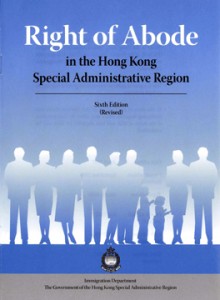28
Jul 2025Can I Set Up A Hong Kong Company, Employ My Business Partner & Sponsor An Employment Visa For Him?
Posted by The Visa Geeza / in Employment Visas, Investment Visas, Your Question Answered / No responses

The answer to this question is multi-part and ultimately driven by the challenges associated with a New Business Situation…
QUESTION
I am based in Hong Kong and would like your advice on visa applications for a friend.
A friend of mine, who is based in the US and I have been discussing a business opportunity for Hong Kong and I wanted to know the best way for him to secure a working visa.
We had discussed me setting up the company and then employing him and subsequently sponsor an employment visa through the company.
Would that work?
The alternative would be for him to apply for an investment visa as he would be the brains behind the operation.
Please can you let me know which option would be best or which would be more successful?
Another friend of mine who set up her own recruitment agency here in Hong Kong said that as an expat setting up a company you are unable to employ someone from overseas for the first year of your business being operational.
Is that also correct?
Any light you could shed on this would be greatly appreciated.
ANSWER
What a lovely question with three particular moving parts that I’d like to address.
The first moving part really relates to your own immigration status; I’m going to take the view that you don’t have an immigration problem to participate in this venture one way or the other – say, for example, because you have a dependent visa, or because you have the right of abode or unconditional stay or right to land, or one of the other two types of immigration status that exist that would allow you to participate in this venture with your business partner. So I’ll assume that there are no immigration implications that, in a sense, impact on you, because if you were an employment visa holder working for a third party employer and you wanted to join in this business, there would be an immigration implication arising for you as well as for your business partner, too. But as I say, I’ll just make the assumption that you don’t have that problem in this mix.
Therefore, turning our attention to the second issue, which is what type of mechanism would be suitable for your partner to secure immigration permissions to be in Hong Kong to carry on this business with you?
Well, whether he applies for an investment visa because he’s got the overwhelming majority of the shares in the business, or whether, for example, you decide that you’re going to split the business 50-50 between the two of you, the bottom line is that the Immigration Department will be working with a new company or a new business situation – whether it’s the investment visa or whether it’s an employment visa, because you only own a smaller percentage of the shares if it’s a new business situation, and invariably it is, because in an investment visa scenario, it’s a new business per se, then the Immigration Department will apply the approvability test for the investment visa, irrespective of how you go about couching the application; all things considered, that is, in the new business situation, they’ll look to see that the enterprise can make a substantial contribution to the economy of Hong Kong, and this would involve the creation of local employment opportunities, the establishment of a proper office, and you need to ensure that you’ve got both funding resources and operational resources. That is the types of things that are normally present that are driving you to make this investment in Hong Kong in the first place.
All of these facets of the approvability stool, as I’ve couched it, absolutely need to be present, irrespective of whether he takes an employment visa because he’s only got a smaller percentage of the shares than you, or it’s an investment visa because he’s got a clear majority of the shares, all things considered.
So one way or the other it doesn’t really matter. You’re still going to have to pass the essential elements of the approvability test which I’ve dealt with elsewhere on the blog.
The third piece to this is your own friend who set up a recruitment agency who stated it was their experience that in the first year per se you’re unable to employ someone from overseas. Um, well that’s not strictly true. Effectively the Immigration Department look at the bona fides of the applicants from the perspective of them being able to show that they posses special skills, knowledge and experience of value to not readily available in Hong Kong and that no local person can be expected to do that job. But again it doesn’t matter the age of the company. If the company is properly resourced and if the three legs of the approvability stool are all in place, then it doesn’t matter the age of the proposed sponsoring entity. It just depends on how strong and well established the business is at the time that you make the application.
Okay, I hope you found useful.
VisaGeeza.Ai – Making Hong Kong Immigration A Lot Easier

VisaGeeza.Ai – 13 Years In The Making
Check Out VisaGeeza.Ai
All Our Know-How : All Our Experience : Fully Interactive
100% FREE!
More Stuff You May Find Useful Or Interesting
The Economy At Home Is Very Bad – So What Investment Visa Options Exist For You In Hong Kong?
What’s The Minimum Capital Required For A Hong Kong Investment Visa?
10 Must Have Resources For A Successful Hong Kong Investment Visa Application
| PODCAST ANSWER |
Podcast: Play in new window




